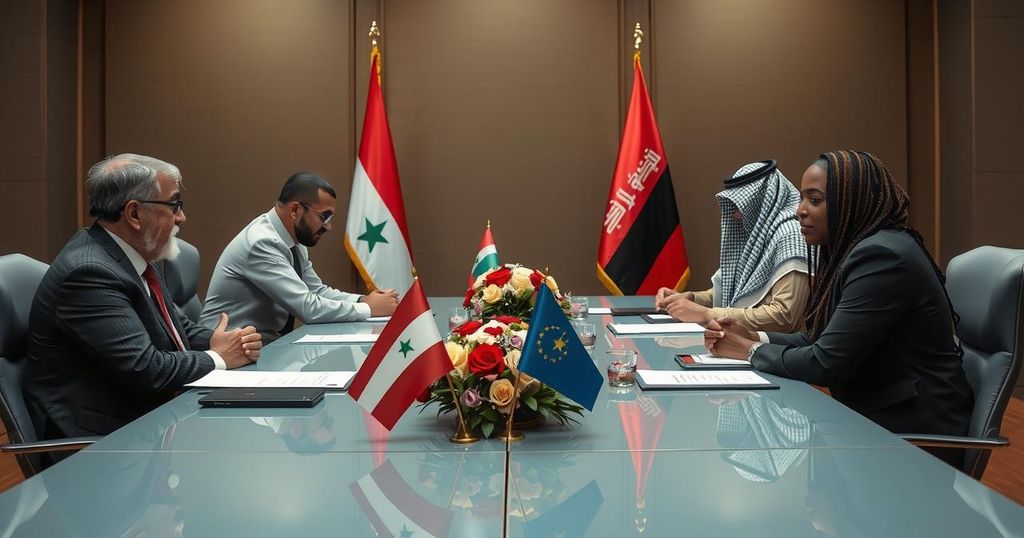Arab states, led by Qatar, are initiating discussions with all factions in Syria to prevent the renewal of civil war following the instability of President Bashar al-Assad’s regime. Emphasizing inclusiveness, they aim to avoid sectarian conflict and ensure a collaborative approach moving forward.
Arab states are initiating a comprehensive dialogue with all factions present in Syria to forestall the resurgence of civil war, as articulated by Qatar’s foreign ministry. Following a recent gathering in Doha to evaluate the abrupt decline of President Bashar al-Assad’s regime, spokesperson Majed al-Ansari expressed appreciation for the minimal violence that accompanied this political shift. He stated that this environment facilitates international actors to engage more effectively and seeks to prevent hostilities among diverse armed groups in Syria.
Al-Ansari emphasized the importance of engaging all groups in Syria’s future, stating, “No one group, no one party or sect should feel unsafe or excluded in the future of Syria.” He acknowledged the necessity of orchestrating military forces collaboratively to mitigate potential conflicts in the coming weeks.
Cautioning against complacency, he indicated the challenges ahead, noting the potential for Syria to devolve into a failed state, reminiscent of other historical revolts in the region. Al-Ansari highlighted that understanding who possesses military power remains ambiguous, thus reiterating the need for targeted dialogue involving all relevant parties.
Qatar’s unique position as one of the few Arab nations not to have acknowledged Assad’s administration includes its ongoing support for the official Syrian opposition based in Doha. This diplomatic stance is crucial as Turkey emerges as a significant player, with its accommodation of Syrian refugees and associations with armed groups that initiated the uprising.
Encouraging Israel to refrain from escalatory actions prior to national dialogue, Al-Ansari refrained from making definitive comments regarding the Islamist militant group Hayat Tahrir al-Sham (HTS) and its potential role in future transitions. However, he noted the group’s recent responsible conduct in Aleppo, suggesting a possibility for them to play a constructive role moving forward.
Regarding the accountability of Bashar al-Assad, it remains for the Syrian populace to determine his fate and the status of foreign military bases in the country. Al-Ansari strongly criticized the Assad regime for its failure to seek dialogue and reconciliation, affirming that the sacrifices made by the Syrian people warrant the pursuit of justice in due course. On the president’s current status, he stated succinctly, “He is in the wind. He is no longer in the city.”
The Syrian civil war, which has lasted over a decade, has resulted in extensive devastation and loss of life, leading to a complex landscape of control by various factions. Recent developments that have seen a political transition in Syria prompt Arab states, particularly Qatar, to engage in discussions with all groups involved in order to maintain peace and prevent further violence. The foreign policy of Arab nations is increasingly focused on inclusive governance in post-Assad Syria, reflecting a broader regional strategy for stability.
In summary, Qatar’s call for a collaborative dialogue among all Syrian factions highlights the urgent need to avert a resurgence of violence following the instability of the Assad regime. The emphasis on inclusivity and potential cooperation from various parties, including Turkey and militant groups, underscores the challenges and critical importance of establishing a stable political environment. As the situation evolves, it remains imperative that the voices and needs of the Syrian people guide any transitional processes.
Original Source: www.theguardian.com






